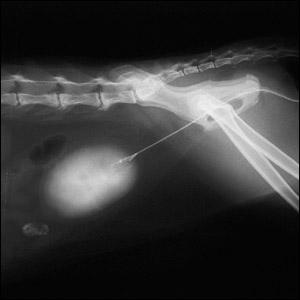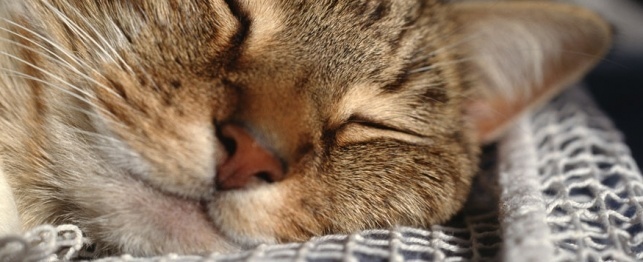
The abdomen is located between the chest and the pelvis and contains many internal organs including the liver, spleen, gallbladder, pancreas and kidneys. Pain within the abdomen can have many causes, all of which should be investigated by a veterinarian.
What causes abdominal pain in cats?
How do you know if your cat has abdominal pain?
Symptoms of abdominal pain may not always be apparent, a hunched over appearance and/or pain when being touched in the abdominal area are both worrisome. Other symptoms may vary depending on the underlying cause, for example a cat with giardia will have diarrhea, a cat with kidney stones may have difficulty urinating, a constipated cat may strain in the litter tray.
Viral, bacterial and parasitic infections (such as giardia) commonly cause vomiting and diarrhea. Giardia can produce foul smelling, frothy feces.
Symptoms of poisoning vary depending on the type. Your cat may appear confused, foam at the mouth, vomit, have seizures.
Cancer symptoms can often be vague but may include loss of appetite, blood in feces, loss of appetite, change in toileting habits (constipation, diarrhea), loss of appetite.
How is the cause of abdominal pain diagnosed?
Your veterinarian will perform a physical examination of your cat and obtain a medical history from you. He will want to know how long your cat has had a painful abdomen, have you noticed other symptoms, what food is he eating, has he possibly eaten something he shouldn't have? Diagnostic tests will depend on the suspected cause but may include:
How is a abdominal pain treated?
Treatment depends on what has caused the painful abdomen in the first place and may include:
 Benadryl For Cats
Benadryl For Cats Benadryl (active ingredient diphenhydramin
Benadryl For Cats
Benadryl For Cats Benadryl (active ingredient diphenhydramin
 Dysuria (Trouble Urinating) in Cats
Dysuria (Trouble Urinating) in Cats
Dysuria (Trouble Urinating) in Cats
Dysuria (Trouble Urinating) in Cats
 Aspergillosis in Cats - Causes, Symptoms and Treatment
Aspergillosis in Cats - Causes, Symptoms and Treatment Asper
Aspergillosis in Cats - Causes, Symptoms and Treatment
Aspergillosis in Cats - Causes, Symptoms and Treatment Asper
 Top 20 Cat Symptoms That Send Them to the Vet
Top 20 Cat Symptoms That Send Them to the Vet
Top 20 Cat Symptoms That Send Them to the Vet
Top 20 Cat Symptoms That Send Them to the Vet
 Pain Relief for Cats with Arthritis
Pain r
Pain Relief for Cats with Arthritis
Pain r
Copyright © 2005-2016 Pet Information All Rights Reserved
Contact us: www162date@outlook.com